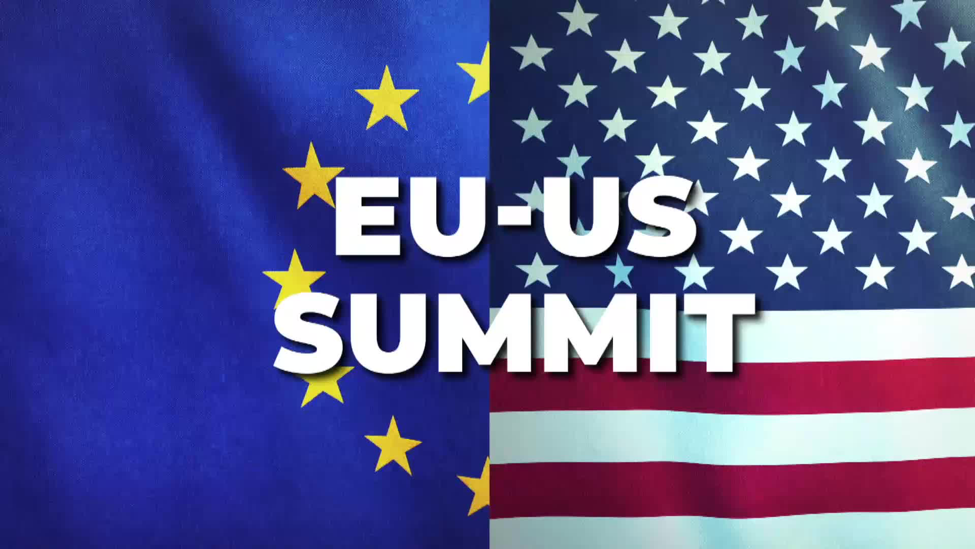While transatlantic allies met yesterday under the auspices of NATO, today the EU leaders are meeting with U.S. President Joe Biden. Naturally, the G7 meeting in Cornwall predestined the topics of today such as an assertive China, reinvigorating global trade, climate change and the challenge caused by Russia. While the world is slowly coming out of the pandemic, a new normal is starting to form, with increasing technological developments and challenges, such in the cyber field. Will leaders be able to take custody of an increasingly challenging future or only make good-sounding commitments? Most importantly, how will the EU define itself vis-à-vis the new U.S. leadership?

It seems as world leaders are trying to catch up with each other, on the lines of the June 13th G7 Summit in Cornwall, the NATO summit the following day, leading up to the classical EU-US summit in Brussels on the 15th of June. As the world is coming out of the pandemic into a new and increasingly challenging global (dis)order transatlantic allies are trying to seek out new ways of cooperation while becoming more sovereign regarding local action. The G7 meeting was the warmup to the following meetings in Brussels.
In Cornwall, leaders discussed global vaccine distribution, which is necessary to restart global economies and provide people new jobs as part of the digital transition and climate change. As economies grapple with the weakened global values-chains, local manufacturing will become more relevant, especially for the European Union in building strategic capacities for the digital decade. There is consensus on cutting CO2 emissions to net zero by 2050. A post-pandemic environment could more easily pave the way to greater global economic changes creating new types of jobs, shifting oil companies to produce green energy, making use of AI in health and focusing more on well-being.
Security is an underlying factor for keeping the abovementioned challenges at bay, which is why NATO as a custodian of European security needs to define new roles for itself. China was personally addressed to keep its commitments and to respect international humanitarian law, even if its values come from a different historical background than that of Europe. China’s increase of nuclear armament and its use of disinformation remains challenging to allies.
Regarding Russia, NATO Secretary General Jens Stoltenberg said that the relationship is at its lowest point since the Cold War and that Russia’s current actions are a security threat to Allies which also concerns the European Union as a whole. This is why perhaps the most interesting meeting will be the EU-U.S. Summit on the 15th of June. Discussions will go along four pillars:
1. Sustainable global economy in a post-COVID setting
2. Protecting the planet while fostering growth
3. Strengthening transatlantic ties in trade, technology and investment
4. Multilateralism, security challenges, foreign policy and democracy
The EU will need to show not only commitment but also capability to provide answers to these challenges. As strategic autonomy is becoming less a taboo, the EU-US relationship will also become more mature. First, the EU will need to have the capacity to act in a future pandemic situation to better protect Member States and their citizens. Decisions implicating protection of health and producing health-equipment as well as free-movement within the Union need to become more swift and immediate.
Regarding the challenges posed by Russia and China the EU will need to develop its own secure networks and communications channels adapting to the new era of 5G and AI. Data of EU citizens need to be securely stored by companies operating within the Single Market, which is why intelligence services need to provide the necessary oversight and prevent malicious cyberattacks towards critical infrastructure. The US would also benefit from a more “capable” European Union which can protect itself. This would means less reliance and more autonomy.
Promoting multilateralism could be possible through climate cooperation which Russia and China are also part of. Leaders need to make sure member states adhere to the Paris Agreement and that investments are providing sustainable jobs in the new post-carbon industry. The transformation of the global economy will not be possible without China or Russia, which is why balancing dialogue, deterrence and diplomacy is key. Overall, European citizens are rightfully waiting for a renewal of global partnerships and perspectives, hopefully the Joint Statement of the EU-US Summit will not disappoint.
16.06.2021. Aron J. Miszlivetz
Image: https://www.consilium.europa.eu/en/meetings/international-summit/2021/06/15/